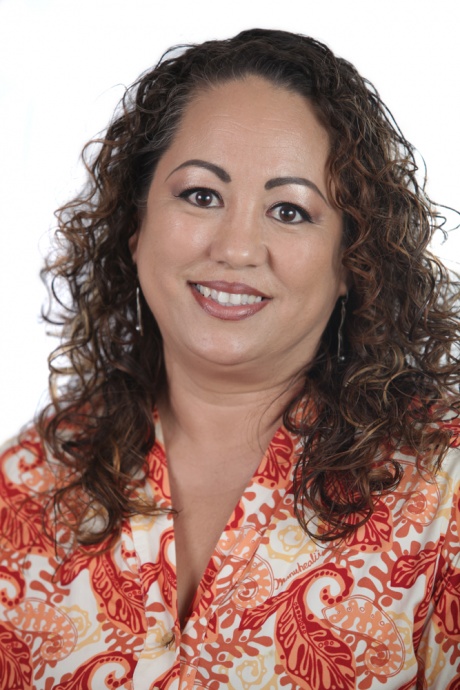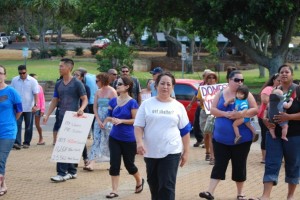Stacey Moniz: Ending Domestic Violence on Maui
By Sarah Ruppenthal
Stacey Moniz survived domestic violence. And through her grace, courage and commitment, she has empowered countless others to do the same.
As the executive director of Women Helping Women (WHW), Moniz is both a resource and an inspiration to those affected by physical, emotional or sexual abuse.
The Pukalani native discovered the fight to survive in 1988, when she fled to Oregon with her two young children to escape her abusive ex-husband.
“The violence didn’t end just because I said I was done,” she recalls. “He stalked and violated restraining orders for three years before I got so afraid that I moved to Oregon.” With the help of WHW, she returned to Maui with a fierce determination to help other victims of domestic violence.
Since then, Moniz has worked as a victims’ advocate, support group facilitator and community outreach specialist. She has also assisted the Maui Police Department (MPD) as a member of the Domestic Violence Response Team and has educated 2nd Circuit Court juries about the dynamics of domestic violence.
“I’ve pretty much done it all,” says Moniz.
Today, as executive director of WHW, she has embarked on a mission to stop the violence, offer support to those who need it and educate the community about why it should care about ending domestic violence for good.
And it’s not just a job for her—it’s a passion.
“Personally, I feel blessed to have my own powerful story to share because it makes it so much easier and portable and real for people,” says Moniz, “but I also like being able to share that my story is not unique and that many women are still struggling with similar stories.”
And the struggle is ongoing, as domestic violence now affects one in four women in the United States. “Everyone is affected by domestic violence,” she says. “If one in four women will be abused, we all know someone who is being abused… but we may not know that it’s happening.”
It’s a staggering statistic for sure, but one that may only be eclipsed by what’s happening right in our own backyard.
Each year, WHW helps at least 500 women and their children annually, and the shelter receives more than 150 women and roughly 150 children each year. Contrary to what some may believe, the agency also assists men in crisis, as services are provided to all victims of domestic violence irrespective of their gender. “We look at violence against women in the context of human rights,” she says. “It’s not just a women’s issue, it’s a community issue.”
Humble by nature, Moniz says she sees her life as a life of service, and enjoys being a “helper.” But she’s also a “doer,” and one who has been instrumental in bolstering community awareness and shaping public policy. “We’ve helped create and change laws that help to keep women and children—and our entire community—safer.”
Moniz tirelessly works within the system to ensure victims of domestic violence receive the support and understanding they so desperately need—as well as a fair chance at justice. “We are fortunate that we, as a community, have a strong response to domestic violence,” she says, “including a great team at the prosecutor’s office and a specialized unit at MPD.”
Perhaps the most intriguing thing about Moniz is that—for someone who witnesses so many negative situations—she always manages to see the positive.
“I am inspired by a power greater than me, who shows me every day that anything is possible,” she says. “I get to see it within myself, my two children, my grandson [and] within the women and children we serve, the community and with the shift in understanding about domestic violence that is happening and changing for the best.”
Above all, Moniz will remain forever grateful to the agency she oversees. “I never would have imagined at that time that some day I would become the director of this very same agency that changed and ultimately saved my life,” she says. “WHW taught me to ask for help, taught me that I could determine what I would accept in my life and that I deserved to be treated with respect and kindness.”
She says she feels an overwhelming sense of gratitude to WHW for the transformation in her life and in the lives of her children.
“I’m so proud of who we’ve all become.”







_1768613517521.webp)

